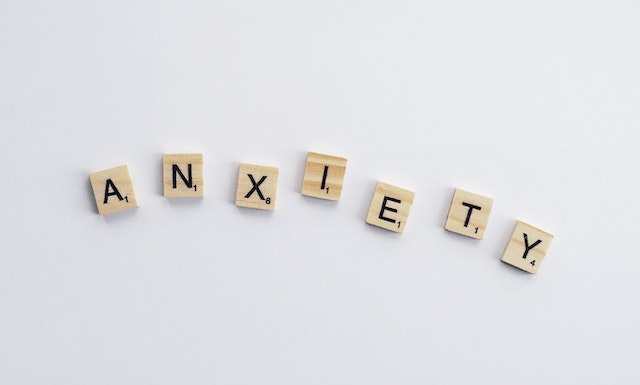
Anxiety is a common mental health condition that affects millions of people worldwide. It can cause a range of physical and emotional symptoms, such as racing heart, sweating, and excessive worry. While there are medications and therapies available to manage anxiety, natural remedies can also be effective in reducing symptoms and preventing panic attacks. Here are some ways to calm anxiety fast:
Deep Breathing Techniques
Breathing Exercises to Calm Anxiety
One of the simplest and most effective ways to calm anxiety is through deep breathing exercises. By focusing on your breath, you can slow down your heart rate, lower your blood pressure, and promote relaxation. Here are some breathing techniques to try:
Abdominal breathing
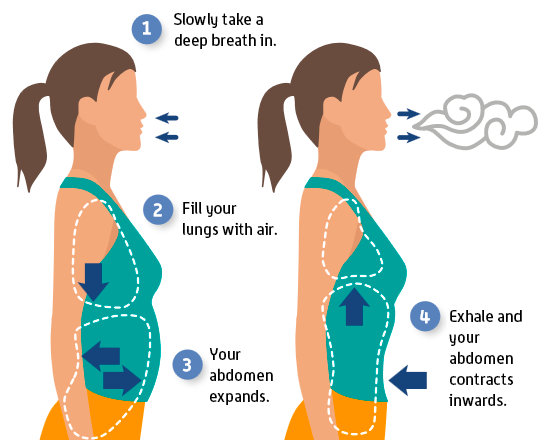 Sit or lie down in a comfortable position and place one hand on your belly. Breathe in deeply through your nose, allowing your belly to expand. Hold your breath for a few seconds, then exhale slowly through your mouth, pulling your belly in. Repeat for several minutes until you feel calmer.
Sit or lie down in a comfortable position and place one hand on your belly. Breathe in deeply through your nose, allowing your belly to expand. Hold your breath for a few seconds, then exhale slowly through your mouth, pulling your belly in. Repeat for several minutes until you feel calmer.Box breathing:
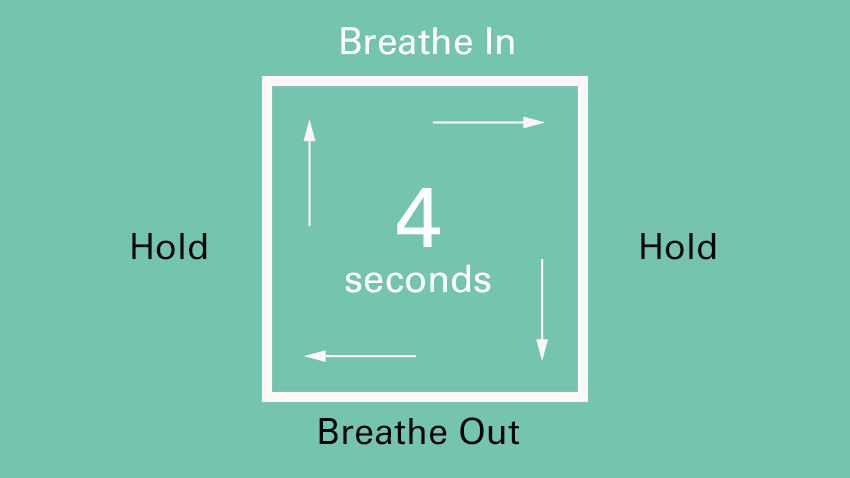 Inhale deeply through your nose for four seconds, hold your breath for four seconds, exhale through your mouth for four seconds, and hold your breath for four seconds before inhaling again. Repeat for several minutes.
Inhale deeply through your nose for four seconds, hold your breath for four seconds, exhale through your mouth for four seconds, and hold your breath for four seconds before inhaling again. Repeat for several minutes.Progressive muscle relaxation:
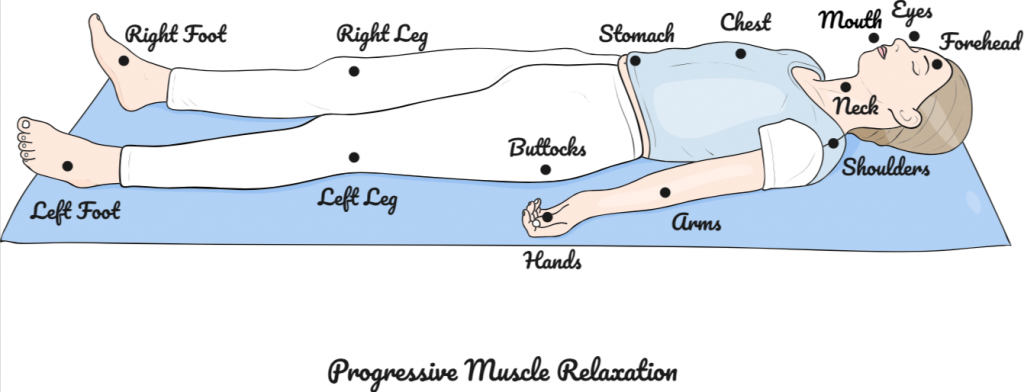 Start by tensing and relaxing your toes, then work your way up your body, tensing and relaxing each muscle group as you go. Focus on your breath and the sensation of relaxation in your muscles.
Start by tensing and relaxing your toes, then work your way up your body, tensing and relaxing each muscle group as you go. Focus on your breath and the sensation of relaxation in your muscles.
2. Mindfulness Techniques
Mindfulness Exercises to Calm Anxiety
Mindfulness is the practice of being present in the moment, without judgment or distraction. It can help you become more aware of your thoughts and feelings, and reduce anxiety. Here are some mindfulness techniques to try:
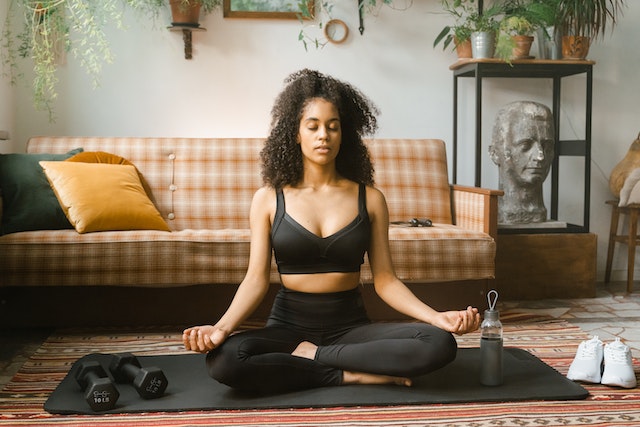
- Body scan: Lie down in a comfortable position and focus on your breath. Slowly scan your body from your toes to your head, noticing any sensations or tension. Try to release any tension and focus on the feeling of relaxation.
- Grounding: Use your senses to become present in the moment. Look around and name five things you can see, four things you can touch, three things you can hear, two things you can smell, and one thing you can taste. This can help you focus on the present moment and reduce anxiety.
- Visualization: Close your eyes and imagine a peaceful scene, such as a beach or a forest. Focus on the details of the scene and imagine yourself feeling calm and relaxed.
3. Lifestyle Changes
Lifestyle Modifications to Calm Anxiety
In addition to breathing and mindfulness techniques, making certain lifestyle changes can also help calm anxiety. Here are some modifications to try:

- Exercise: Regular exercise can help reduce anxiety by releasing endorphins and promoting relaxation. Even a short walk or yoga session can help calm your mind and body.
- Diet: Certain foods can exacerbate anxiety symptoms, such as caffeine and sugar. Try to eat a balanced diet with plenty of fruits, vegetables, and lean protein to support your mental health.
- Sleep: Lack of sleep can increase anxiety symptoms, so aim for at least 7-8 hours of sleep per night. Try to establish a consistent sleep schedule and create a relaxing bedtime routine.
4. Seeking Professional Help
When to Seek Professional Help for Anxiety
While natural remedies can be effective in reducing anxiety symptoms, some people may need professional help to manage their anxiety. Here are some warning signs that you may need to seek professional help:
- Your anxiety is interfering with your daily life, such as work or relationships.
- You have frequent panic attacks or experience severe anxiety.
- Your anxiety is causing physical symptoms, such as chest pain or difficulty breathing.
- You have suicidal thoughts or behaviors.
- You have a history of trauma or abuse and are experiencing anxiety as a result.
- You have tried natural remedies and they have not been effective in reducing your anxiety symptoms.
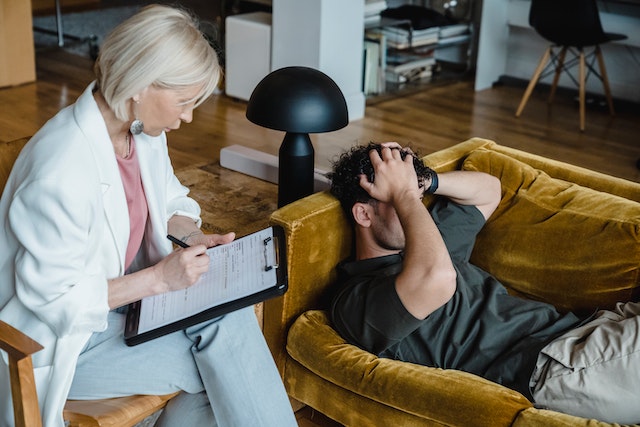
If you are experiencing any of the warning signs listed above, it may be time to consider seeking professional help for your anxiety. There are many options for treatment, and what works best for you will depend on your individual needs and preferences. Some possible options for professional help include:
- Therapy: Seeing a therapist can be very helpful for managing anxiety. Cognitive-behavioral therapy (CBT) is a common type of therapy used for anxiety, and it focuses on identifying and changing negative thought patterns that contribute to anxiety.
- Medication: There are many different types of medications that can be used to treat anxiety, including antidepressants, anti-anxiety medications, and beta-blockers. Talk to your doctor to see if medication is a good option for you.
- Support groups: Joining a support group for people with anxiety can provide a sense of community and help you feel less alone in your struggles.
- Lifestyle changes: Making changes to your lifestyle, such as getting regular exercise, practicing relaxation techniques like meditation or yoga, and improving your sleep habits, can all be helpful in reducing anxiety.
It’s important to remember that seeking professional help for anxiety is a sign of strength, not weakness. Anxiety is a common and treatable condition, and there is no shame in asking for help when you need it. With the right treatment, you can learn to manage your anxiety and live a full, happy life.



